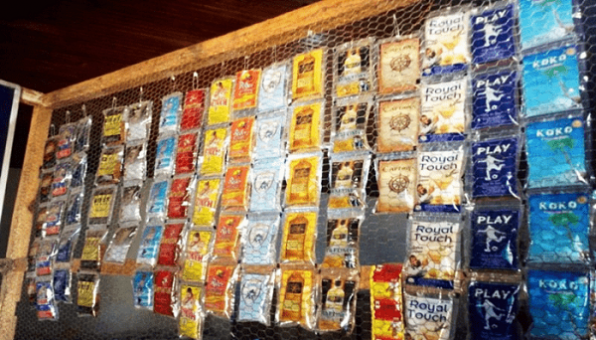Latest News
Health Groups Rally Behind NAFDAC As Nigeria Moves To Crush Sachet Alcohol Trade

According to Ireporter Online, the Coalition for Healthy Food Advocacy (CHFA) has expressed strong support for the National Agency for Food and Drug Administration and Control (NAFDAC) as the Federal Government prepares to implement the ban on sachet and small-volume alcoholic beverages in December, ahead of full nationwide enforcement in January 2026.
The coalition urged manufacturers, distributors, retailers, and market associations to comply fully with the directive, while calling on security agencies and state governments to collaborate with NAFDAC in monitoring markets, curbing illicit production, and preventing the prohibited products from resurfacing. It also emphasised the need for sustained public sensitisation to ensure citizens understand the health rationale behind the policy.
CHFA described the ban as a crucial intervention to protect minors, reduce non-communicable diseases, and strengthen the country’s food environment. In a statement on Thursday, the group warned that the continued presence of cheap, high-alcohol sachet drinks poses severe risks to young people and to low-income communities where such products are widely sold without age restrictions. It noted that these beverages have long been linked to early alcohol initiation due to their affordability, potency, and accessibility in informal markets.
The coalition maintained that strict enforcement is vital to safeguarding children and adolescents from early exposure that can result in long-term health and social complications. It recalled that the impending enforcement follows a five-year moratorium agreed in 2018 between NAFDAC, the Federal Ministry of Health, the Federal Competition and Consumer Protection Commission, and beverage manufacturers—an arrangement designed to give producers sufficient time to phase out high-risk packaging formats.
Community reports compiled by CHFA indicate that sachet alcohol has disproportionately impacted low-income neighbourhoods. The organisation noted that alcohol consumption is associated with over 200 diseases and injury conditions, including liver disease, hypertension, stroke, various cancers, and worsened outcomes for individuals living with diabetes. It added that small sachets and mini-containers often contain high alcohol concentrations and are typically consumed quickly, encouraging binge drinking and increasing the risk of road accidents, unsafe sexual behaviour, poisoning, and premature death.
Beyond medical dangers, the coalition highlighted the negative effects of alcohol on diet and nutrition, warning that frequent consumption displaces healthier food choices, increases cravings for salty and fatty snacks, impairs nutrient absorption, and worsens glycaemic control. It stressed that eliminating sachet alcohol supports ongoing national nutrition initiatives, including sodium reduction, trans-fat elimination, and the adoption of Front-of-Pack Labelling.
CHFA also underscored the economic toll of harmful alcohol use, citing growing health expenses, productivity losses, road injuries, and social disruption. It argued that these costs significantly outweigh the revenue generated from alcohol sales and insisted that prioritising the welfare of young people is essential for strengthening human capital and securing long-term economic growth.
Akinbode Oluwafemi, Executive Director of Corporate Accountability and Public Participation Africa, was quoted as saying that many communities have endured alcohol-related violence, addiction, and heightened economic hardship. He reaffirmed that public health must take precedence over profit and urged industry stakeholders to support full compliance with the ban.
Dr. Jerome Mafeni, Lead Technical Advisor at the Network for Health Equity and Development and CHFA’s Secretariat Lead, added that removing sachet alcohol aligns with national strategies to prevent hypertension, diabetes, and cardiovascular diseases. He stressed that a healthier population is critical to sustainable development and that the economic burden of alcohol-related harm is far greater than industry players admit.
According to the coalition, eliminating sachet alcohol is a necessary step toward building a healthier, safer, and more productive Nigeria.
-

 Latest News6 days ago
Latest News6 days ago“Tinubu Is Open To All Nigerians — Ahmed Lawan Fires Back At Critics”
-

 Latest News2 weeks ago
Latest News2 weeks ago“I Owe No One An Apology” – Senate Leader Bamidele Declares Unshakable Loyalty To Governor Oyebanji
-

 Latest News2 weeks ago
Latest News2 weeks agoEFCC Restores Hope: 70-Year-Old Widow Reclaims ₦42.5 Million Stolen By Banker
-

 Latest News1 week ago
Latest News1 week agoDefence Headquarters Responds Hours After Wike’s Heated Clash With Military Officers
-

 Latest News1 day ago
Latest News1 day agoTinubu Finalises Ambassadorial List, Set To Dispatch Nominees To Senate Anytime
-

 Latest News2 weeks ago
Latest News2 weeks agoRegina Daniels Begs Ex: “Please Don’t Release My S3x Tape” — Actress Vows Legal Fight
-

 Latest News2 days ago
Latest News2 days agoChaos In Abuja As Ex-Governor Ortom Forced Out Of PDP Meeting Amid Power Struggle
-

 Latest News7 days ago
Latest News7 days agoOkpebholo Drops The Hammer: Two Edo Monarchs Dethroned Amid Rising Tensions
-

 Latest News2 days ago
Latest News2 days agoNigeria At COP30 — Momoh’s Strategic Engagement Reshapes The Country’s Climate Presence In Belém
-

 Latest News1 week ago
Latest News1 week ago“Marry My Daughter!” — US Soldier Offers Daughter To Lt. Yerima After Viral Clash With Wike
-

 Latest News4 days ago
Latest News4 days agoTinubu Poised To Release Powerful New Ambassadorial List After Nationwide Diplomatic Overhaul
-

 Latest News3 days ago
Latest News3 days agoWorkers Fume As FG Delays Last Three Months Of ₦35,000 Wage Award



